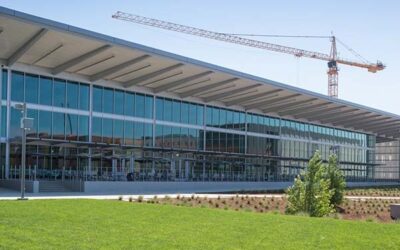Many schools over 15 years old are presenting superintendents with challenges like aging infrastructure and rising operational costs…
What is New Construction Commissioning?
New construction commissioning is often required by city or local codes, generally triggered by project size and/or systems included. New construction commissioning is also required for any project pursuing Leadership in Energy and Environmental Design (LEED) certification from the US Green Building Council (USGBC).
Retro-Commissioning: Increase Building Performance and Efficiency
Taking charge of the efficiency of your building is essential to reducing your utility expenditures and improving your organization’s bottom line. Having a competent commissioning authority on your team is essential when constructing new systems or substantially expanding existing ones.
Enhanced Retro-Commissioning (ERCx)
Optimizing energy efficiency in an older building can present many opportunities and challenges. Depending on when the facility was constructed, you could be dealing with aging HVAC systems, outdated controls hardware, inefficient controls sequences of operation, and other systems designed for a building that has evolved away from its original design intent.
Monitoring-Based Commissioning for New and Existing Buildings
The key advantage of monitoring-based commissioning is the availability of a constant stream of data to inform decision-making. When faced with dynamic facility operations, it is essential to know how your building’s systems are responding to changing conditions.
Industrial Retro-Commissioning Generates Significant Energy Savings
Industrial facilities often focus on capital-intensive projects, such as equipment replacement, or the installation of devices or widgets to improve their energy performance instead of looking at the operations of the energy-consuming systems as a whole.
Introduction to Commissioning
Designers are the architecture and engineering professionals that decide how a building is to be constructed and how a proposed system will be integrated into the building. The contractors are the workers doing the actual physical construction: pouring concrete, wiring new system controls, installing new heat exchange components,
Energy Terminology 101: The Basics of Energy Usage and Production
If you’re new to the world of energy production and usage, some of the scientific and engineering terminologies can feel a little intimidating. Knowing the basics will help you navigate opportunities for improving your energy efficiency, and guide your decision making. Our experts at Veregy have set out to answer your questions and define common energy terminology.













